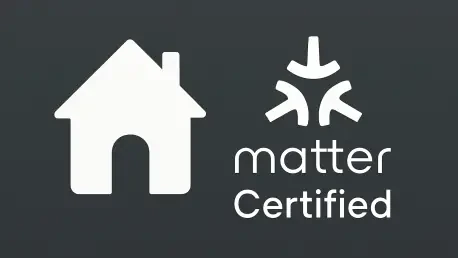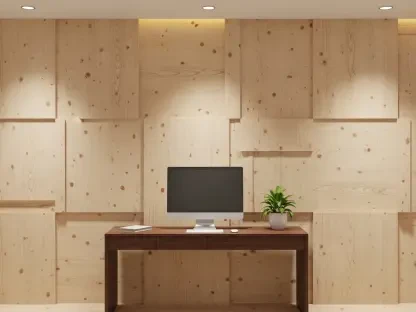Imagine a world where every smart home device, from light bulbs to thermostats, communicates effortlessly, regardless of the brand or platform behind them, creating a truly unified experience for users everywhere. This vision of seamless interoperability has long been a dream for consumers and manufacturers alike, yet the reality has often been fragmented by competing standards and complex development processes. The Connectivity Standards Alliance (CSA) has taken a transformative step toward realizing this dream with the introduction of the Matter Compliant Platform Certification program. This initiative is reshaping the smart home ecosystem by simplifying the creation of compatible devices and fostering a unified user experience. It marks a significant shift in how silicon vendors and device manufacturers approach innovation, promising to accelerate the pace of progress in an industry hungry for reliability and trust.
Unlocking Efficiency in Smart Home Development
Streamlining the Certification Process
The Matter Compliant Platform Certification program offers a groundbreaking solution to one of the most persistent challenges in smart home technology: the time and cost associated with ensuring device compatibility. By allowing silicon vendors to certify their hardware and software development kits as Matter-compliant platforms, the CSA has created a framework that validates critical components like networking, security, and connectivity protocols upfront. This pre-approval means device manufacturers can build on trusted foundations, drastically reducing the need for extensive individual product testing. Companies such as Espressif Systems, Nordic Semiconductor, and NXP Semiconductors have already embraced this certification, demonstrating its value in cutting down development timelines. The result is a faster path from concept to market, enabling businesses to prioritize unique features over repetitive compliance hurdles while ensuring a consistent experience for users across diverse products.
Reducing Costs and Enhancing Focus
Beyond just speeding up the process, this certification program significantly lowers the financial burden on manufacturers, allowing them to allocate resources more effectively. Traditionally, achieving interoperability across different smart home ecosystems has required substantial investment in testing and recertification, often diverting attention from innovation. With Matter’s platform-level validation, costs are reduced through streamlined processes like Rapid Recertification and Matter FastTrack Recertification, which minimize the need for redundant efforts. This efficiency empowers smaller companies to compete in the market by leveling the playing field, as they can leverage pre-certified components without breaking the bank. For larger players, it means redirecting budgets toward research and development of cutting-edge functionalities, ultimately benefiting consumers with more advanced and varied smart home solutions that maintain high standards of reliability and security.
Building a Unified Smart Home Ecosystem
Fostering Interoperability Across Brands
A core pillar of the Matter standard, supported by tech giants like Apple, Amazon, Google, and Samsung, is its commitment to interoperability, and the certification program amplifies this mission at a foundational level. By ensuring that platform components—ranging from Bluetooth Low Energy discovery to Thread and Wi-Fi integration—are pre-validated, the CSA enables devices from different manufacturers to work together seamlessly. This addresses a long-standing frustration for consumers who often struggle with incompatible gadgets, even within the same category. The growing adoption of Matter certification among silicon vendors like Silicon Labs and the upcoming certification of Realtek Semiconductor Corporation signals an industry-wide shift toward a more cohesive ecosystem. This trend promises to expand the range of compatible devices available, giving users greater freedom to mix and match products without worrying about connectivity issues.
Driving Innovation and Consumer Trust
The ripple effects of the Matter Compliant Platform Certification extend beyond technical compatibility to inspire confidence in the smart home market as a whole. As the standard evolves with regular updates to include new device types and enhanced security features, the certification program helps manage the complexity of integrating these advancements by shifting much of the burden upstream to platform providers. This allows manufacturers to adapt quickly to changes without sacrificing quality, resulting in shorter innovation cycles and more robust products. For consumers, this translates to a marketplace filled with reliable, secure, and future-proof devices that enhance daily life. The badge of certification also serves as a mark of credibility for silicon vendors, reassuring device makers and end users alike that the underlying technology meets rigorous standards, thus fostering trust in an industry where skepticism about performance has often lingered.
Charting the Path Forward
Reflecting on Industry Progress
Looking back, the rollout of the Matter Compliant Platform Certification program by the CSA proved to be a turning point for the smart home sector. It tackled head-on the inefficiencies that once plagued device development, offering a structured approach that benefited silicon vendors, manufacturers, and consumers in equal measure. The early adoption by leading companies set a precedent, encouraging widespread acceptance of the Matter standard and paving the way for a more interconnected landscape. This initiative demonstrated how strategic collaboration could dismantle barriers to innovation, ensuring that technological advancements were not bogged down by procedural redundancies. The emphasis on platform-level validation reshaped the supply chain, making interoperability a default rather than an aspiration, and delivered tangible improvements in product reliability and user satisfaction.
Envisioning Future Opportunities
As the industry moves forward, the focus should shift toward expanding the scope of Matter certification to cover emerging technologies and device categories, ensuring the standard remains relevant amid rapid advancements. Stakeholders must continue to invest in education and outreach to help smaller manufacturers understand and adopt the certification process, further democratizing access to the smart home market. Additionally, ongoing collaboration between tech leaders and the CSA will be crucial to anticipate and address evolving security challenges, keeping consumer trust at the forefront. Exploring partnerships with other standards bodies could also amplify Matter’s impact, creating a truly global framework for interoperability. By building on the foundation laid by this program, the smart home industry can look ahead to a future where innovation is not just accelerated but also inclusive, delivering solutions that transform everyday living with unmatched ease and efficiency.









